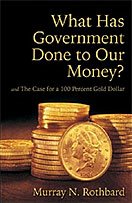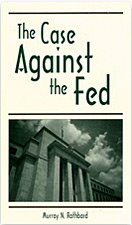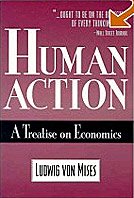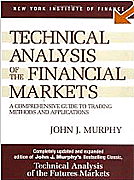Will Dow-gold ratio hit one-to-one again?
Newmont vice-chair Pierre Lassonde looks back at where the price of gold was, and how high it might rise, in this interview with business reporter Lisa Wright.
Q. What do you make of this correction of gold prices?
A. Hey, a year ago it was at $600-and-something (U.S.), so it's still pretty good. We're just getting a bit of a pullback, which is healthy. But I do believe that over the next year or two we'll break right through the $850 (barrier). At some point in the next five years you'll see gold with three zeroes after the first number, we just don't know what number that's going to be.
Q. So where is gold headed?
A. I'll bring out my crystal ball (laughs). But everything is pretty well unfolding the way that we had anticipated and gold is responding primarily to the devaluation of the U.S. dollar. That correlation is the most important in terms of the gold price. We had foreseen that we were going to chase the old highs, the $850 (range), and just almost touched it last week.
Q. What's your theory on the price?
A. Something I've been pointing out since 1999 in our Franco-Nevada annual report is the Dow Jones industrial average divided by gold price. It will blow you away. The Dow represents financial assets while gold represents hard assets. And, over a 100-year period from 1920 to today, there are cycles. There are times to own financial assets, when the ratio goes up, and then there are times to own hard assets, when the ratio goes down because it's one against the other.
So from 1920 to 1929, you wanted to be in financial assets. From 1929 to 1935 you really wanted to be in gold. This is a very interesting thing because the financial asset peak was in 1966. And then the hard asset peak was 1980, so this was a 14-year bull market in hard assets. When you think about it gold went from $35 to $850. If I told you in 1966 that gold is going to $800, you'd say `Lassonde you're completely out of your mind. You're wacko.' But oil went from $2.50 to $50 in that same time. And you know what happened to real estate prices in Toronto in the '70s.
Now here's the real kicker. At the top of the hard-asset bull market, (1933), the Dow, which had been 370 at the top, bottomed at 37, and gold peaked at (about) $35. The ratio was essentially one-to-one. In 1980, the Dow was (about) 800 and gold was $800. One-to-one. You know where the Dow is today – (just over) 13,000. Gold is $800. In every bull market in the last 100 years the ratio came down to essentially one-to-one.
Q. Is this Dow versus gold theory picking up steam?
A. When you tell portfolio managers this, it scares the heck out of them. If the Dow was to lose 90 per cent of its value and go down to 1,200 and gold is at $1,200, you have one-to-one. But then they're wiped out. They're kaput. Or is the Dow going to come down to 6,000 or 8,000 and gold is going to go to $6,000 or $8,000? That's what happened in 1980. The Dow only lost 20 per cent of its value but gold just went straight up.
Q. What do you realistically see happening?
A. When people say to me, what's going to propel gold to $2,000 or $3,000? I don't know. How could I have foretold the events of the 1970s, for instance? Here I think we have a multiplicity of events. We have an industry that's shrinking. We have central banks that are going to turn into buyers, not sellers. And the European central banks are going to run out of gold .... So I do think we're going to continue to see good times in this industry for a generation.
Q. People don't think gold has been in as big a bull market as base metals.
A. That's right. Copper went from 65 cents to $4. That's seven times. Gold is up three times. Oil went from $12 to $96. That's eight times. So, in effect, gold has been the lagging commodity in this hard-asset bull market.
Q. Are these exciting times?
A. Well, the 1970s were a lot of fun but they're generational bull markets. You have to wait 20 years in between. You've got to keep yourself busy. I must admit, being a bit older (and) having more money, this is even more fun.
Q. What do you make of this correction of gold prices?
A. Hey, a year ago it was at $600-and-something (U.S.), so it's still pretty good. We're just getting a bit of a pullback, which is healthy. But I do believe that over the next year or two we'll break right through the $850 (barrier). At some point in the next five years you'll see gold with three zeroes after the first number, we just don't know what number that's going to be.
Q. So where is gold headed?
A. I'll bring out my crystal ball (laughs). But everything is pretty well unfolding the way that we had anticipated and gold is responding primarily to the devaluation of the U.S. dollar. That correlation is the most important in terms of the gold price. We had foreseen that we were going to chase the old highs, the $850 (range), and just almost touched it last week.
Q. What's your theory on the price?
A. Something I've been pointing out since 1999 in our Franco-Nevada annual report is the Dow Jones industrial average divided by gold price. It will blow you away. The Dow represents financial assets while gold represents hard assets. And, over a 100-year period from 1920 to today, there are cycles. There are times to own financial assets, when the ratio goes up, and then there are times to own hard assets, when the ratio goes down because it's one against the other.
So from 1920 to 1929, you wanted to be in financial assets. From 1929 to 1935 you really wanted to be in gold. This is a very interesting thing because the financial asset peak was in 1966. And then the hard asset peak was 1980, so this was a 14-year bull market in hard assets. When you think about it gold went from $35 to $850. If I told you in 1966 that gold is going to $800, you'd say `Lassonde you're completely out of your mind. You're wacko.' But oil went from $2.50 to $50 in that same time. And you know what happened to real estate prices in Toronto in the '70s.
Now here's the real kicker. At the top of the hard-asset bull market, (1933), the Dow, which had been 370 at the top, bottomed at 37, and gold peaked at (about) $35. The ratio was essentially one-to-one. In 1980, the Dow was (about) 800 and gold was $800. One-to-one. You know where the Dow is today – (just over) 13,000. Gold is $800. In every bull market in the last 100 years the ratio came down to essentially one-to-one.
Q. Is this Dow versus gold theory picking up steam?
A. When you tell portfolio managers this, it scares the heck out of them. If the Dow was to lose 90 per cent of its value and go down to 1,200 and gold is at $1,200, you have one-to-one. But then they're wiped out. They're kaput. Or is the Dow going to come down to 6,000 or 8,000 and gold is going to go to $6,000 or $8,000? That's what happened in 1980. The Dow only lost 20 per cent of its value but gold just went straight up.
Q. What do you realistically see happening?
A. When people say to me, what's going to propel gold to $2,000 or $3,000? I don't know. How could I have foretold the events of the 1970s, for instance? Here I think we have a multiplicity of events. We have an industry that's shrinking. We have central banks that are going to turn into buyers, not sellers. And the European central banks are going to run out of gold .... So I do think we're going to continue to see good times in this industry for a generation.
Q. People don't think gold has been in as big a bull market as base metals.
A. That's right. Copper went from 65 cents to $4. That's seven times. Gold is up three times. Oil went from $12 to $96. That's eight times. So, in effect, gold has been the lagging commodity in this hard-asset bull market.
Q. Are these exciting times?
A. Well, the 1970s were a lot of fun but they're generational bull markets. You have to wait 20 years in between. You've got to keep yourself busy. I must admit, being a bit older (and) having more money, this is even more fun.
Labels: bull market, gold















![[Most Recent Quotes from www.kitco.com] [Most Recent Quotes from www.kitco.com]](http://www.kitco.com/images/live/t24_au_en_usoz_6.gif)
![[Most Recent Quotes from www.kitco.com] [Most Recent Quotes from www.kitco.com]](http://www.kitco.com/images/live/au_go_0030_ny.gif)
![[Most Recent Quotes from www.kitco.com] [Most Recent Quotes from www.kitco.com]](http://www.kitco.com/images/live/au_go_0365_ny.gif)
![[Most Recent Quotes from www.kitco.com] [Most Recent Quotes from www.kitco.com]](http://kitconet.com/charts/metals/silver/t24_ag_en_usoz_4.gif)

















0 ΣΧΟΛΙΑ (COMMENTS):
Post a Comment
<< Home